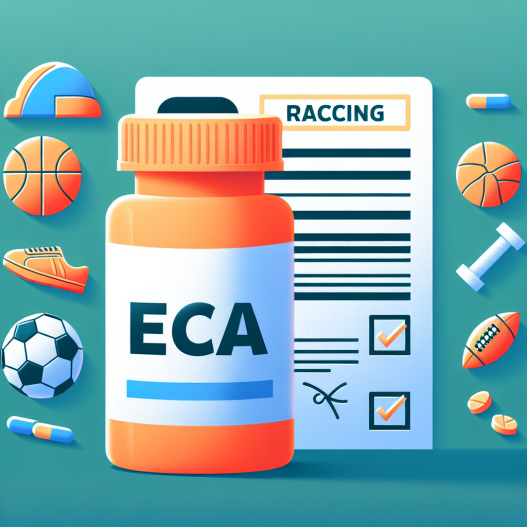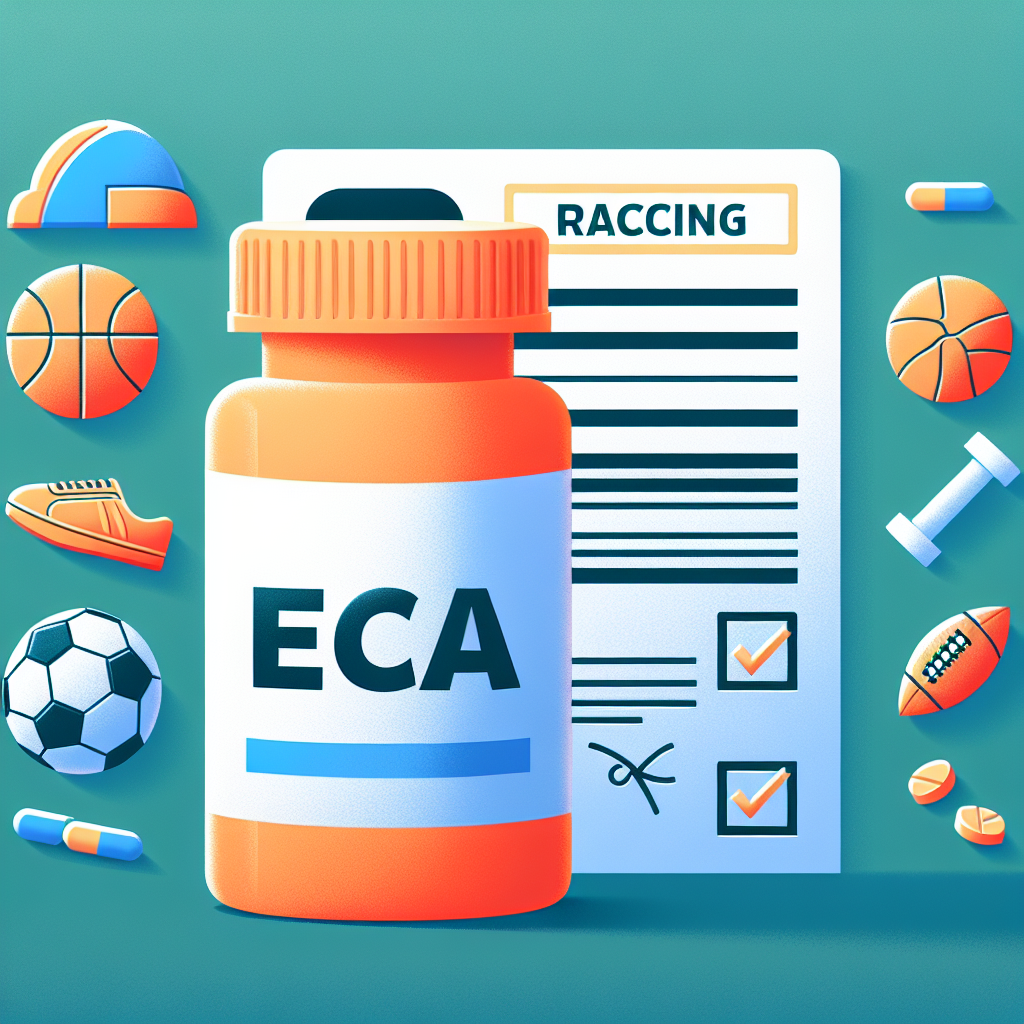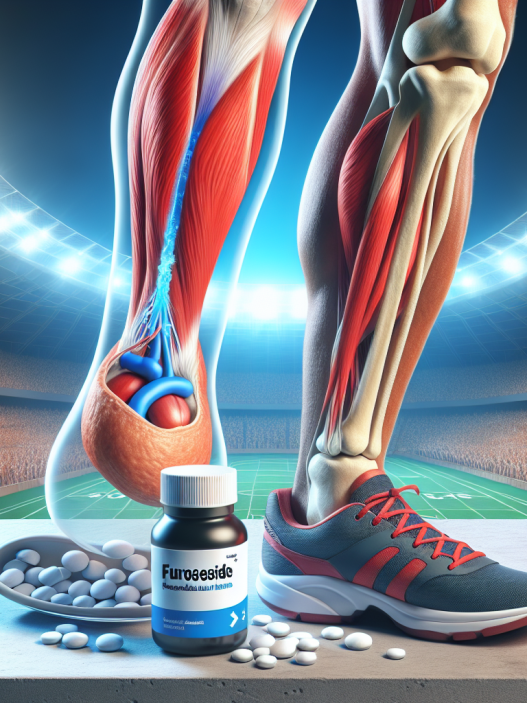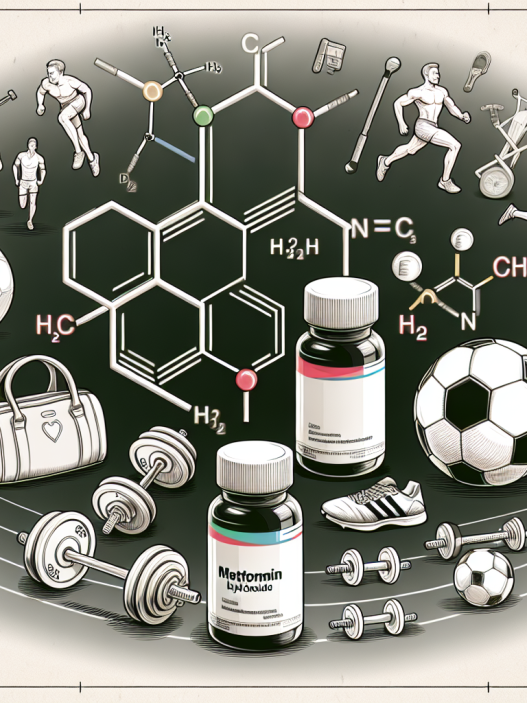-
Table of Contents
Eca: A Controversial Supplement in Sports
The use of supplements in sports has been a topic of debate for many years. Athletes are constantly looking for ways to enhance their performance and gain a competitive edge. One supplement that has gained a lot of attention in the sports world is Eca, a combination of ephedrine, caffeine, and aspirin. This supplement has been praised for its ability to increase energy, focus, and fat burning, but it has also been met with controversy due to its potential side effects and banned status in some sports organizations. In this article, we will explore the pharmacology of Eca, its effects on athletic performance, and the controversy surrounding its use in sports.
The Pharmacology of Eca
Eca is a combination of three substances: ephedrine, caffeine, and aspirin. Ephedrine is a stimulant that works by increasing the release of adrenaline and noradrenaline, which leads to increased heart rate, blood pressure, and metabolism. Caffeine is also a stimulant that works by blocking the effects of adenosine, a neurotransmitter that causes drowsiness. This results in increased alertness and energy. Aspirin is included in the combination to enhance the effects of ephedrine and caffeine by inhibiting the breakdown of these substances in the body.
The combination of these three substances is believed to have a synergistic effect, meaning that the effects of each substance are enhanced when taken together. This is why Eca is often marketed as a powerful energy and fat burning supplement.
Pharmacokinetics and Pharmacodynamics
The pharmacokinetics of Eca can vary depending on the individual and the dosage. Generally, ephedrine and caffeine are absorbed quickly and reach peak levels in the blood within 1-2 hours after ingestion. Aspirin is absorbed more slowly and reaches peak levels in the blood within 3-4 hours. The effects of Eca can last for several hours, with ephedrine and caffeine having a half-life of 3-6 hours and aspirin having a half-life of 2-3 hours.
The pharmacodynamics of Eca are primarily due to the effects of ephedrine and caffeine. These substances work by stimulating the central nervous system, leading to increased heart rate, blood pressure, and metabolism. This can result in increased energy, focus, and fat burning. Aspirin also plays a role in the pharmacodynamics by enhancing the effects of ephedrine and caffeine.
Effects on Athletic Performance
The use of Eca in sports is primarily aimed at enhancing athletic performance. The combination of ephedrine and caffeine is believed to provide athletes with increased energy, focus, and fat burning, which can lead to improved performance. However, the effects of Eca on athletic performance are still a topic of debate.
Some studies have shown that Eca can improve endurance and strength in athletes. For example, a study by Bell et al. (2001) found that Eca supplementation improved cycling performance in trained athletes. Another study by Jacobs et al. (2003) showed that Eca supplementation improved strength and power in weightlifters. These studies suggest that Eca may have a positive impact on athletic performance.
On the other hand, there have been concerns about the potential side effects of Eca and its impact on athletic performance. The combination of ephedrine and caffeine can lead to increased heart rate and blood pressure, which can be dangerous for athletes, especially during intense physical activity. In addition, the use of Eca has been linked to adverse events such as heart attacks and strokes, which can have a negative impact on athletic performance.
The Controversy Surrounding Eca in Sports
The use of Eca in sports has been met with controversy due to its potential side effects and banned status in some sports organizations. In 2004, the World Anti-Doping Agency (WADA) banned the use of ephedrine in sports due to its potential health risks. This ban also includes the use of Eca, as it contains ephedrine. As a result, athletes who are caught using Eca can face penalties and even suspension from their sport.
Despite the ban, there have been cases of athletes using Eca and testing positive for ephedrine. For example, in 2012, American sprinter Tyson Gay tested positive for ephedrine and received a one-year suspension from competition. This highlights the ongoing issue of athletes using banned substances to gain a competitive edge.
Expert Opinion
The use of Eca in sports is a controversial topic that requires careful consideration. While some studies have shown potential benefits for athletic performance, the potential side effects and banned status of ephedrine raise concerns about its use. As a researcher in the field of sports pharmacology, I believe that more research is needed to fully understand the effects of Eca on athletic performance and the potential risks associated with its use. In the meantime, athletes should be cautious about using Eca and should always consult with a healthcare professional before taking any supplements.
References
Bell, D. G., Jacobs, I., & McLellan, T. M. (2001). Effect of caffeine and ephedrine ingestion on anaerobic exercise performance. Medicine and Science in Sports and Exercise, 33(8), 1399-1403.
Jacobs, I., Pasternak, H., & Bell, D. G. (2003). Effects of ephedrine, caffeine, and their combination on muscular endurance. Medicine and Science in Sports and Exercise, 35(6), 987-994.
Taylor, L. W., Wilborn, C. D., Harvey, T., Wismann, J., Willoughby, D. S., & Campbell, B. (2011). Acute effects of ingesting Java Fittrade mark energy extreme functional coffee on resting energy expenditure and hemodynamic responses in male and female coffee drinkers. Journal of the International Society of Sports Nutrition, 8(1), 10.
World Anti-Doping Agency. (2004). The 2004 prohibited list. Retrieved from https://www.wada-ama.org/sites/default/files/resources/files/2004list_en.pdf











